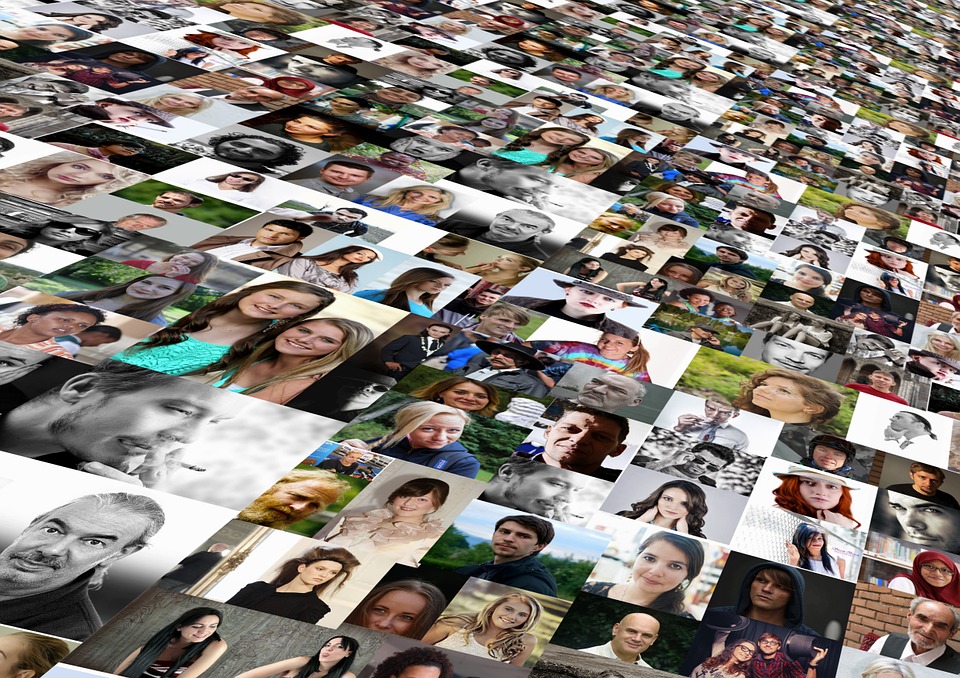If you've ever dreamt of the good life for all based on everybody's individual skills and needs, free from domination and in mutual appreciation and cooperation, you've got the chance now to help make this dream come true: from 21 to 25 June around 1000 people will be getting together in Mecklenburg-Vorpommern, North-East Germany, to "design the future, de-grow growth and live utopia" in a spirit of openness, trust and emancipation.
New and special with this event is that it picks up and connects many impulses, ideas and initiatives from existing movements and strives to carry them one step further towards a powerful utopia; thereby stretching the limits of what's thinkable and doable to the utmost possible.
But isn't this naïve? Why should we of all people succeed just now in what others have failed to achieve for ages? Because currently "everything is possible", as the American author and activist Charles Eisenstein writes in his brilliant analysis of the Trump election - which just as well applies to the surge of right-wing populism here in Europe:
"The dissolution of the old order that is now officially in progress is going to intensify. That presents a tremendous opportunity and danger, because when normal falls apart the ensuing vacuum draws in formerly unthinkable ideas from the margins. (…) Anything becomes possible with the collapse of dominant institutions. When the animating force behind these new ideas is hate or fear, all manner of fascistic and totalitarian nightmares can ensue (…).That is why (…) it is important to introduce a different kind of force to animate the structures that might appear after the old ones crumble."
In my view, this very pointed description of the current state of the world leads to two concrete conclusions:
1) Passively observing the situation and hoping that everything will be all right is no longer possible. For this, the looming threats are too powerful and too realistic. If we – and with this I mean everyone who believes in values such as solidarity, universal human rights and ecological sustainability – want to bring this "different kind of force" into being, we actively need to go for it and motivate as many people, groups and initiatives as possible to join in.
2) "Utopian" is the new "realistic". The hitherto unquestioned notions of "realistic" and "utopian" are currently crumbling and even turning into their exact opposites. Much of what for long has appeared to be the only possible reality - seemingly stretching into the future forever - is now perceivably dissolving, leaving the term "realistic" in a totally different light. In the absence of the old reality, any thinkable utopia or, unfortunately, dystopia suddenly enters the realm of possibility. This is why it is so important that we who share life on Earth these days decide which of the possible utopias we want to support and turn into our concrete reality.
In such changing times, several stories are running in parallel and we've got the chance to choose which of them we want to tell with our daily actions, perceptions and decisions. In this sense, story doesn't mean a piece of fiction, but the way we place our experiences and observations in a broader context of meaning. To speak once again in Charles Eisenstein's words:
"We are entering a space between stories. After various retrograde versions of a new story rise and fall and we enter a period of true unknowing, an authentic next story will emerge. What would it take for it to embody love, compassion, and interbeing? I see its lineaments in those marginal structures and practices that we call holistic, alternative, regenerative, and restorative. All of them source from empathy, the result of the compassionate inquiry: What is it like to be you?"
What can we actually do for this "unknowing" we all share to become a fertile ground for an inspiring new story? A story we can tell from all of our hearts in a spirit of joy, hope and enthusiasm? One of MOVE UTOPIA's answers to this question is (slightly shortened):
"We want to develop new forms of living together to make a good life for all possible. Conscious of our dependence on this earth and also on each other, we are deeply convinced that we can live together according to our needs and abilities. We celebrate the experiment of living utopia to confront the global issues of our time beyond nations."
Utopia is on the horizon I move two steps closer it moves two steps further away I walk another ten steps and the horizon runs ten steps further away As much as I may walk, I'll never reach it So what's the point of utopia? The point is this: to keep walking
This oft-cited poem by Eduardo Galeano brings into consciousness that beyond our boldest dreams there might be further horizons we can't even think of with our current "mental infrastructures" (Harald Welzer), let alone connect to our day-to-day lives. So let's start moving! And who can actually know what lies behind the horizon?

The annual World Economic Forum in Davos brought together representatives from government and business to deliberate how to solve the worsening climate and ecological crisis. The meeting came just as devastating bush fires were abating in Australia. These fires are thought to have killed up to one billion animals and generated a new wave of climate refugees. Yet, as with the COP25 climate talks...

In his welcome address at the opening plenary of the 5th International Degrowth Conference, Federico Demaria from Research and Degrowth made explicitly clear that immigrants, refugees and their struggles must be integral part of the degrowth community: "Refugees and the other oppressed shall always be kept in mind while imagining degrowth and the socio-ecological transformation we are walking. ...

If current crises like environmental degradation and social inequality can be seen as result of our economic and social systems, the concept of a degrowth economy has been advanced as a possible solution. Degrowth is in direct contrast to economic systems such as capitalism or sustainable growth, and in fact has much more in common [...]